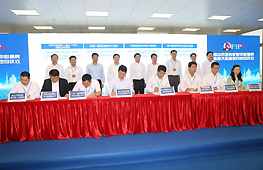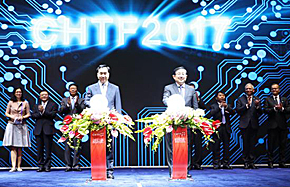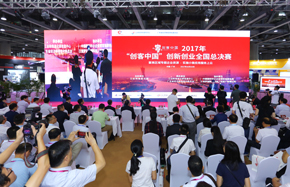China, Uzbekistan discuss culture and tourism cooperation online
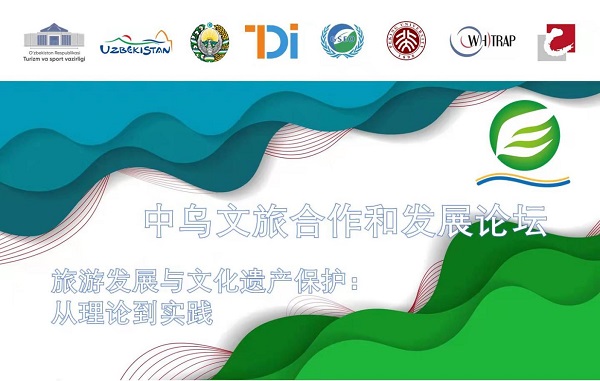 |
|
2021 China-Uzbekistan Cultural Tourism Cooperation and Development Symposium kicks off on Nov 24. [Photo provided to China Daily] |
The international symposium entitled "Cultural Heritage Preservation and Tourism Promotion in Uzbekistan: From Theory to Action" was held online on Nov 24-25. More than 20 top experts from China and Uzbekistan delivered keynote speeches at the symposium, and nearly 300 participated online. It is one of the most influential professional cultural and tourism summits between the two countries to be held since the beginning of the pandemic.
Hosted by the Ministry of Tourism and Sports of the Republic of Uzbekistan, the Tourism Development Institute (Uzbekistan), and the Green and Smart Energy Organization, with support provided by multiple agencies including the Uzbekistan Cultural Heritage Agency, the "Silk Road" International University of Tourism and Cultural Heritage, the Beijing Palace Museum Archeology Research Institute, the Peking University School of Archeology and Museology, the World Heritage Institute of Training and Research for the Asia and Pacific Region under the auspices of UNESCO (Beijing), the Silk Road Archeological Cooperation and Research Center, and the Cultural Development Research Center of the Central Academy of Culture and Tourism Administration.
The symposium was launched with the aim of strengthening people-to-people and cultural exchanges, forming a large pattern of diverse and interactive people-to-people exchanges, and creating new space for the common development of countries involved in the Belt and Road Initiative (BRI).
Uzbekistan has among the richest tourism and cultural heritage attractions in Central Asia and along the Silk Road, and the symposium will promote the realization of this initiative.
"This symposium will promote the consistent development of cultural heritage protection values between China and Uzbekistan and lead to more cooperation between the two sides. Taking this symposium as an opportunity, cooperation between China and Uzbekistan will be extended to other countries along the silk road,” said Abdulaziz Akulov, vice-minister of Tourism and Sports of the Republic of Uzbekistan, in his speech.
Tursunali Kuziyev, director of the Cultural Heritage Agency of Uzbekistan, emphasized that China-Uzbekistan cultural exchanges are highly inclusive. He expressed hope that this symposium be carried out regularly to promote the implementation of more cultural tourism projects on both sides.
Elena Golisheva, director of the Tourism Development Institute (Uzbekistan), said in her speech that "the relevance of the symposium is undoubted, since it will consider relevant issues in the preservation of cultural heritage for future generations, innovative approaches to the development of tourism, and new technologies in the restoration and restoration of ancient monuments.”
China and Uzbekistan have seen a lot of success in the field of cultural tourism, including the joint protection and restoration project of the ancient city of Khiva and the Global South-South Development Center project supported by the Chinese government and the United Nations Office for South-South Cooperation entitled "Tourism Promotes Poverty Reduction, Employment and Women's Development in Uzbekistan." The two countries have established a strong relationship founded on mutual trust and cooperation.
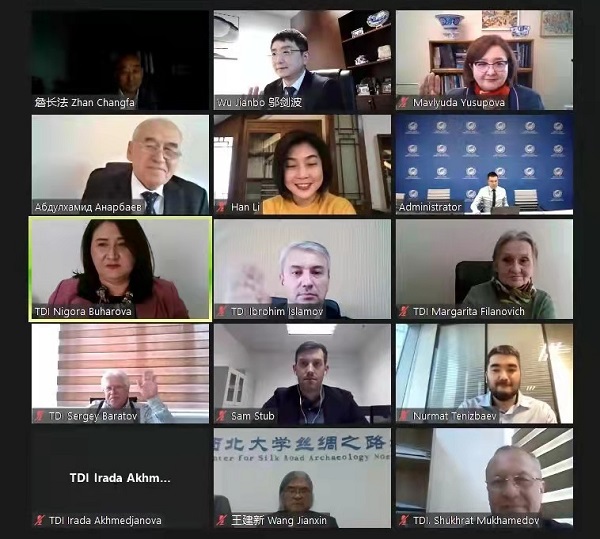 |
|
Experts attend the 2021 China-Uzbekistan Cultural Tourism Cooperation and Development Symposium online. [Photo provided to China Daily] |
"This symposium builds upon and is an improvement on previous projects. It is hoped that experts from both sides will form more distinctive and targeted cooperation projects and sub-projects through full exchange," said Li Ji, former executive vice-president of the Palace Museum and Chairman of the Forbidden City Cultural Heritage Foundation, in his speech.
Zhan Changfa, former vice-president of the Chinese Academy of Cultural Heritage, said in his opening speech: "The Action Plan for the Protection of Historical and Cultural Heritage will inject new vitality into the Silk Road and the integration of Chinese and Central Asian cultures and mutual learning between civilizations, and it will also promote the sustainable development of socio-economic and cultural tourism and provide strong support for development."
Zhou Qingfu, president of the Central Academy of Culture and Tourism Management; Wang Kunxin, deputy secretary-general of the World Tourism Federation and member of the 14th Five-Year Planning Expert Committee of the Ministry of Culture and Tourism; Wang Jianxin, Professor of Northwest University; Wang Rui, deputy director of the archaeology department of the Palace Museum; Zhang Jianlin, researcher of the Shaanxi Province Archeology Research Academy; Li Guanghan, assistant director of the World Heritage Institute of Training and Research for the Asia and Pacific Region under the auspices of UNESCO (Beijing); Li Jingjie, professor of the Academy of Fine Arts of Tsinghua University; and Zhou Xiaoguang, chairman of Guilin Tangchao International Travel Agency, respectively delivered speeches and put forward relevant initiatives to strengthen cooperation, which were highly praised by their counterparts in Uzbekistan.
The 84-year-old Margarita Filanovich, one of the most famous and renowned archaeologists in Central Asia, introduced the ancient Aktepa site in Tashkent and expressed her desire to jointly carry out restoration work with her Chinese counterparts. During the open discussion portion of the symposium, she proposed carrying out projects with Chinese counterparts in the Sir River Corridor, which received positive responses from the Chinese side.
More than 10 Uzbek experts including Sergey Baratov, senior researcher at the Archaeological Center of the National Academy of Sciences of Uzbekistan; Mavlyuda Yusupova, director of the Department of Architecture of the Academy of Fine Arts of Uzbekistan; and Bakhtiyor Ergashev, director of the Department of History and Historical Materials of Samarkand State University said that they look forward to further cooperation with Chinese experts in the protection of Uzbekistan's cultural heritage and tourism development.
Wu Jianbo, secretary-general of the Green and Smart Energy Organization and co-organizer of the symposium, expressed his hopes that through the symposium, China and Uzbekistan, as well as other countries involved in the BRI, will be motivated to carry out more green cooperation, and through the implementation of major projects contribute to national and regional post-pandemic recovery and global sustainable development, build a green BRI international cooperation mechanism, improve green governance capabilities, and jointly pursue green economic growth.
Through the in-depth interaction of experts from both sides, this symposium has opened up more practical channels for cooperation between the two countries, and will help implement the BRI in the new era. Experts from both sides have agreed to carry out normalized, standardized and large-scale cooperation in the field of cultural tourism, and to carry out joint talent training, special training, academic exchanges and other projects to jointly promote humanities exchanges and green development along the silk road.









